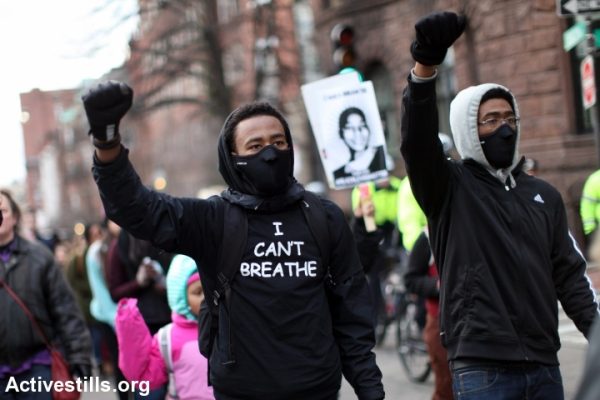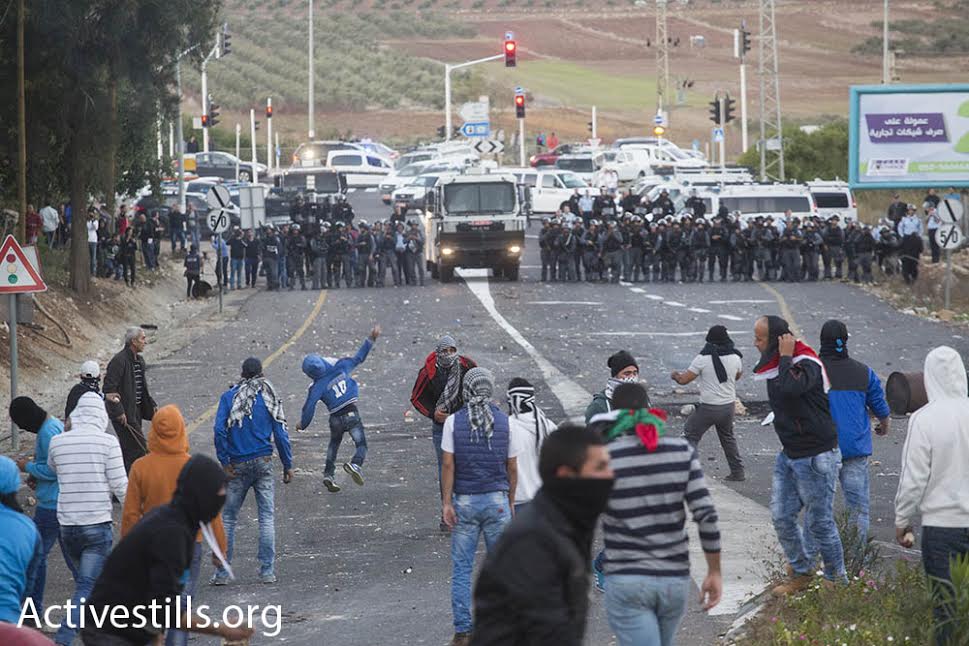Although Black-Palestinian solidarity stretches back to the 1970s, one must wonder whether it still has the power to bring about effective change.
By Khelil Bouarrouj

The animating idea of contemporary American left-wing activism is “intersectionality,” the concept that oppressive institutions are connected in their subjugation of discrete groups, and that oppressed people should be/are in shared struggle.
One of the most prominent expressions of intersectionality has been the Black-Palestinian solidarity movement, which has a rich history and was spontaneously renewed in late 2014 after Palestinians on social media used the hashtag #Palestine2Ferguson in support of the Black Lives Matter (BLM) protests over the killing of Michael Brown. The following year, over 1,000 Black activists, artists, scholars, and organizations signed the Black Solidarity Statement with Palestine, first published by Ebony Magazine. That same year, many of the signatories traveled to Palestine to bear witness to Israeli injustice, and the spoken word video “When I See Them I See Us,” featuring Lauryn Hill, Angela Davis, Rasmeah Odeh and other notable Black and Palestinian artists and activists, went viral across both communities.
Now the Palestinian civil rights organization Adalah — The Legal Center for Arab Minority Rights in Israel — has launched Freedom, Bound, a forum for the “artistic and historical account of the shared struggle for collective liberation.” Freedom, Bound promotes the concept of “art as resistance” that presents data visualizations comparing the unequal reality for Blacks in the U.S. and Palestinian citizens of Israel.
There is nothing novel about Black-Palestinian solidarity. But one must wonder whether solidarity augurs the likelihood for effective change. And if so, perhaps it is best that we critically examine the proposed strategy for mutual change.

Freedom, Bound foregrounds solidarity activism on “common terms of struggle and a shared vision for liberation,” but how useful is this for Palestinians? During the Civil Rights era, Black American leaders summoned America’s founding ideals — its foundational texts — and the promise of “all men are born equal” at the heart of the nation’s conscience. The moral power of these ideals has always resonated among large segments of the American people, even as the nation has always fallen short of its principles.
There is no similar context in Israel, which was founded primarily — if not exclusively — for Jews, and has acquired international legitimacy (incl. the UN’s 1947 Partition Plan supporting a Jewish state in Palestine) precisely as such a state. Israel’s raison d’être is preserving a Jewish state, which necessitates at least some inequality between Jews and non-Jews, and the Israeli public nearly unanimously views a non-confessional state as an existential threat.
While Black Americans have traditionally looked to the U.S. federal government and the courts for refugee from discriminatory state governments, Palestinians face a hostile central authority, whose discriminatory laws are legitimized by the courts. Consider that in 1967, the U.S. Supreme Court struck down anti-miscegenation laws. In 2012, however, Israel’s Supreme Court ruled that “human rights are not a prescription for national suicide” in response to a petition put forth by Palestinian citizens of Israel challenging a law that prohibits Palestinians from the occupied territories who marry Palestinian citizens from receiving Israeli citizenship, in an attempt to secure a Jewish majority.
Israel’s court has also updated “separate but equal” (the legal basis of segregation in the American South) to “visible equality.” Former Israeli Attorney General Menachem Mazuz coined the term to permit ostensibly invisible racial discrimination at Israel’s Ben-Gurion Airport. Former Chief Justice Aharon Barak, along with liberal Zionist legal scholars, argue that the state “is allowed to favor the preferences of the dominant national group, and so long as minority groups living in that state belong to a group that is favored in any state, the preferential treatment of the majority citizens is not unjust and does not amount to illegitimate discrimination.” In other words, Palestinian citizens of Israel have theoretical rights, but no practical rights inside the country of their birth.

The doyen of Palestinian scholars, Walid Khalidi, wrote: “Absolute justice is rarely obtained in human affairs, not this side of the grave, but pragmatic justice, by taking cognizance of the losses, the sufferings, and the gains of the two protagonists since the conflict began, as well as of contemporary power realities.” Given the vastly different realities in authority, legal system, and public opinion, it is not self evident that Palestinians can rely on “common terms” and “shared vision for liberation” with Black Americans.
Equality, in a country that elected Barack Obama, is an attainable cause for Black-Americans. But is it for Palestinians in Israel? I would argue, resoundingly, no. Israel’s status as a Jewish state will never, short of military defeat, be conceded for a reborn state for all its citizens. A Palestinian “shared vision” with Black Americans premised on a one-state/equality-for-all model is no more attainable than Black Americans aspiring for independent statehood in America.
The Palestinians have known plenty of solidarity. In 1978, the PLO staged a touring exhibition featuring artists from around the world declaring common cause between Palestinians and other progressive movements, such as the struggle against Pinochet’s dictatorship in Chile and Apartheid South Africa. That project was long forgotten until it resurfaced at the Barcelona Museum of Contemporary Art in 2015. If Black-Palestinian solidarity is going to be more effective than past efforts, the noble desire to lock arms should not confuse similar problems that do not mandate similar solutions. Instead, the spirit of solidarity should work out ways to aid the unique trajectory of each struggle.
Khelil Bouarrouj is a fellow at the Institute for Palestine Studies, and a frequent contributor to Palestine Square.
Correction:
A previous version of this article referred to Menachem Mazuz as a former justice of the Israeli Supreme Court. The text has been corrected to reflect that Mazuz was the former attorney general of Israel. He is currently a justice on the country’s Supreme Court.

